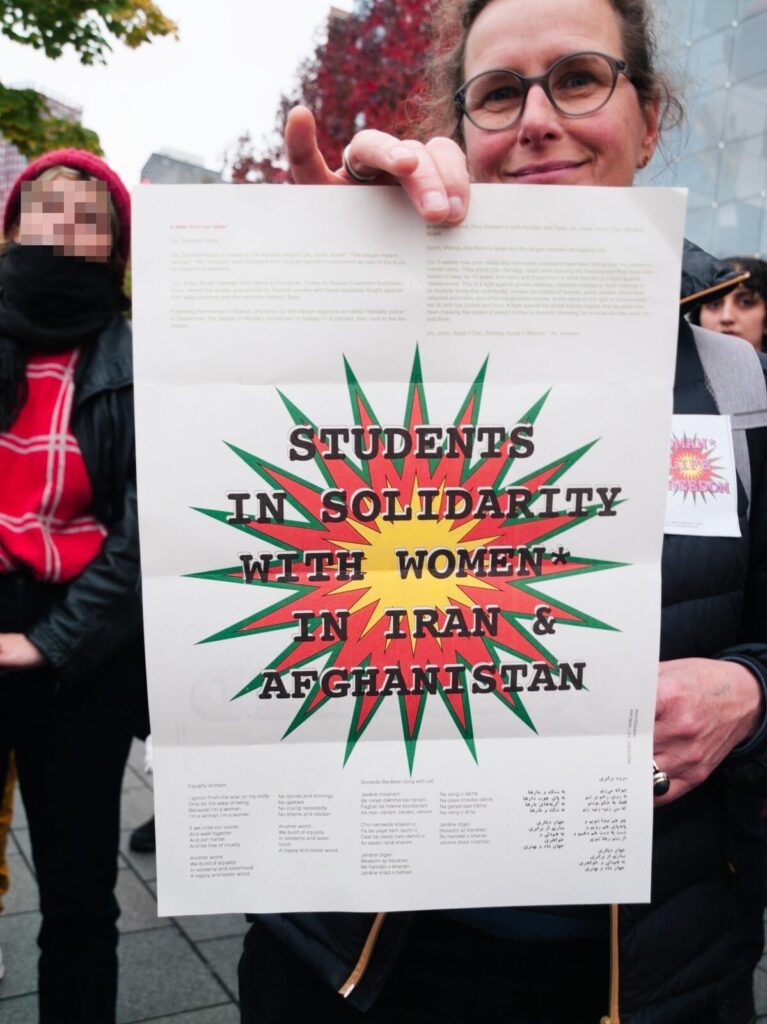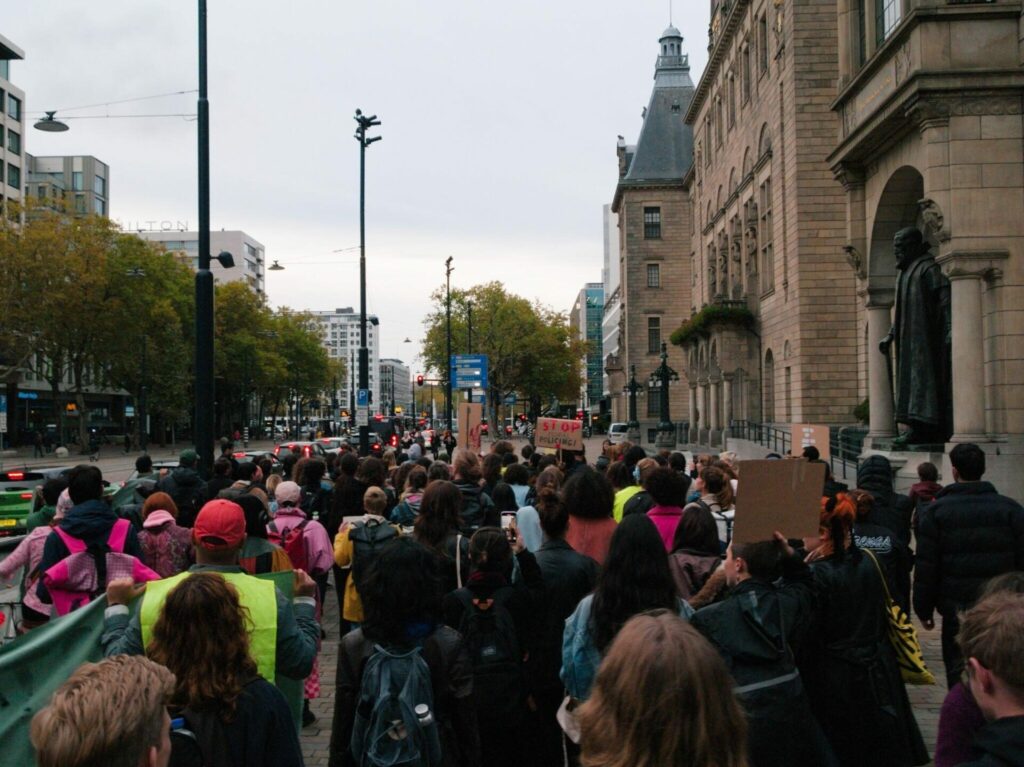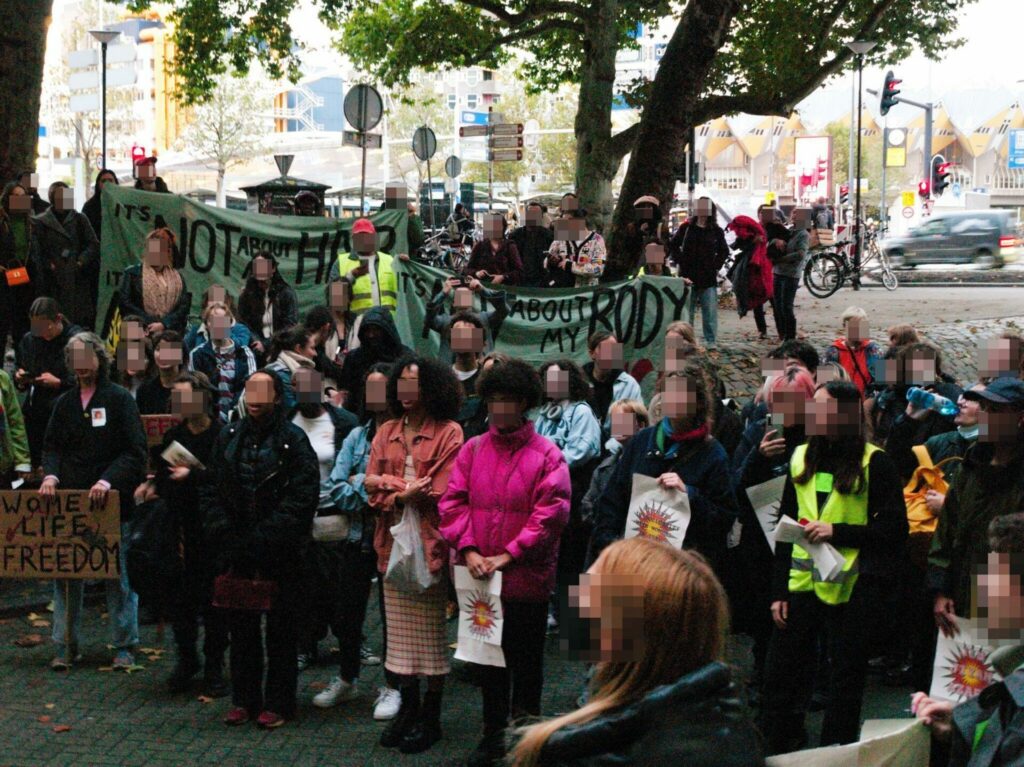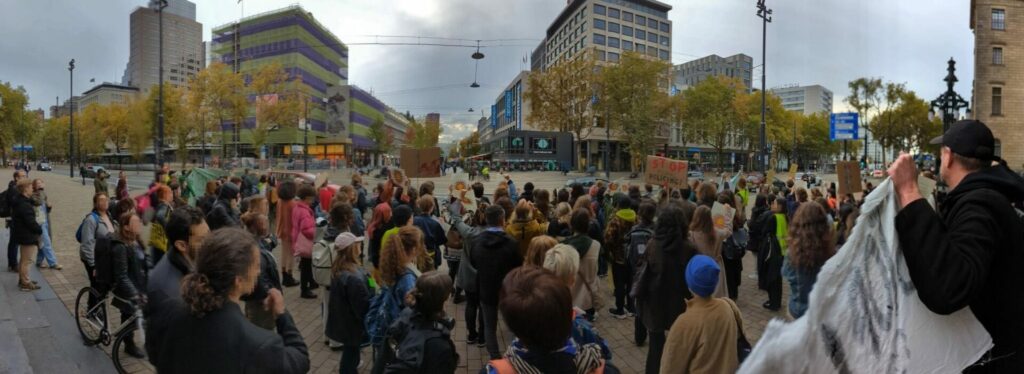Rotterdam: students and teachers protest in solidarity with uprising in Iran and Afghanistan
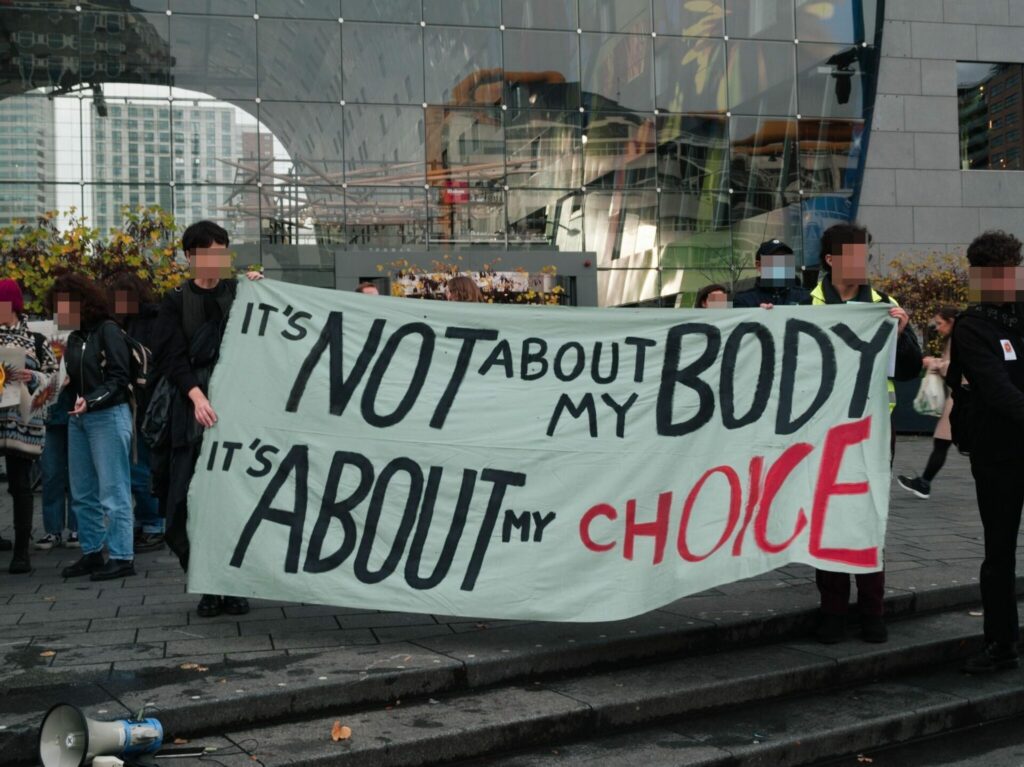
On Monday October 17, 2022, about 140 students and teachers from the Willem de Kooning Academy of Art Rotterdam demonstrated in solidarity with women, students and anti-regime protesters in Iran and Afghanistan. The protest was initiated by two self-organized student initiatives, “Spin” and “WdKA Haven”. They demanded from their own school and Dutch universities to no longer remain silent, and make “a public statement recognising the recent events in Iran and giving the support needed to Iranian students and teachers”.
The Iranian protest movement’s Farsi slogan “Zan Zendegi Azadi” and its Kurdish equivalent “Jin, Jiyan, Azadi” (meaning “Women, Life, Freedom”) also formed the protest chants of this demonstration. It started at the Markthal, went to the Rotterdam City Hall and ended in front of the Willem de Kooning Academy. Several protest statements and critical reflections by Iranian and Afghan activists, including striking oil workers, were read to the audience. Guest speakers included an Iranian artist and an American Black Lives Matter activist.
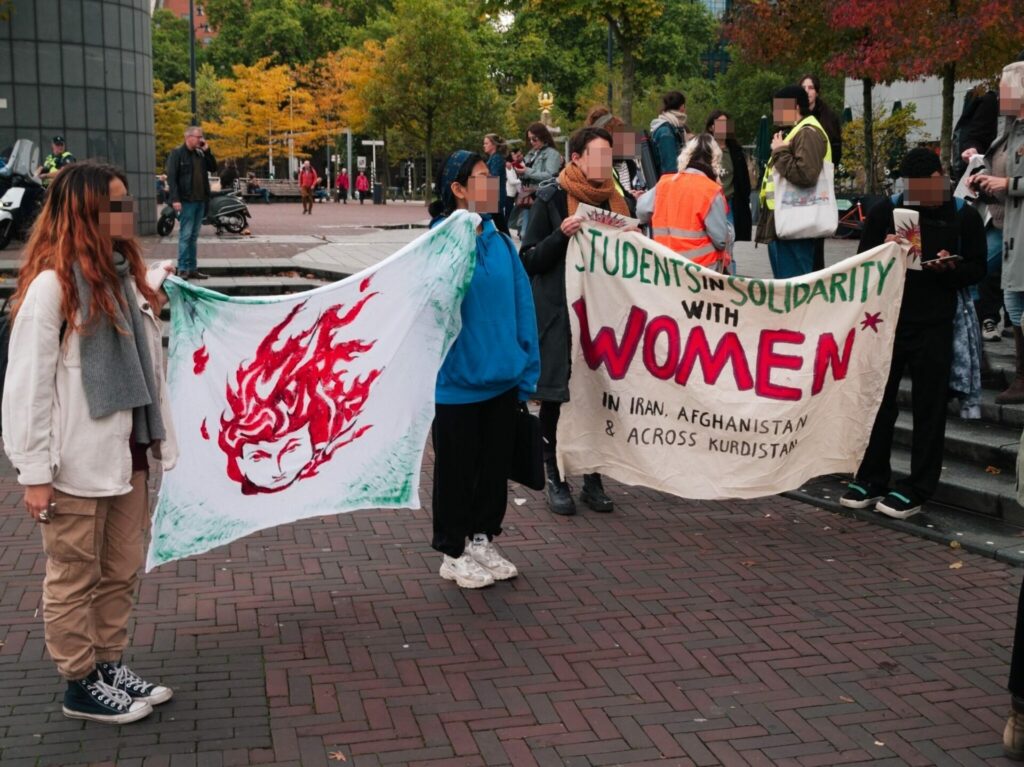
The demonstration demanded not only an end to the Islamic Republic of Iran, but also an end to the genocide of Kurds and other ethnic minorities in the region. The organizers emphasized: “Kurdish people as well as other minorities have especially carried the burden of the movement, facing extreme state violence in majority Kurdish areas in Iran and Iraq, in addition to other ethnic minorities such as Baluchi people in Zahedan / Baluchistan.” The demonstration was also against the ban on secondary education for girls and women in Afghanistan and the genocidal attacks on the Hazara ethnic minority in the country.
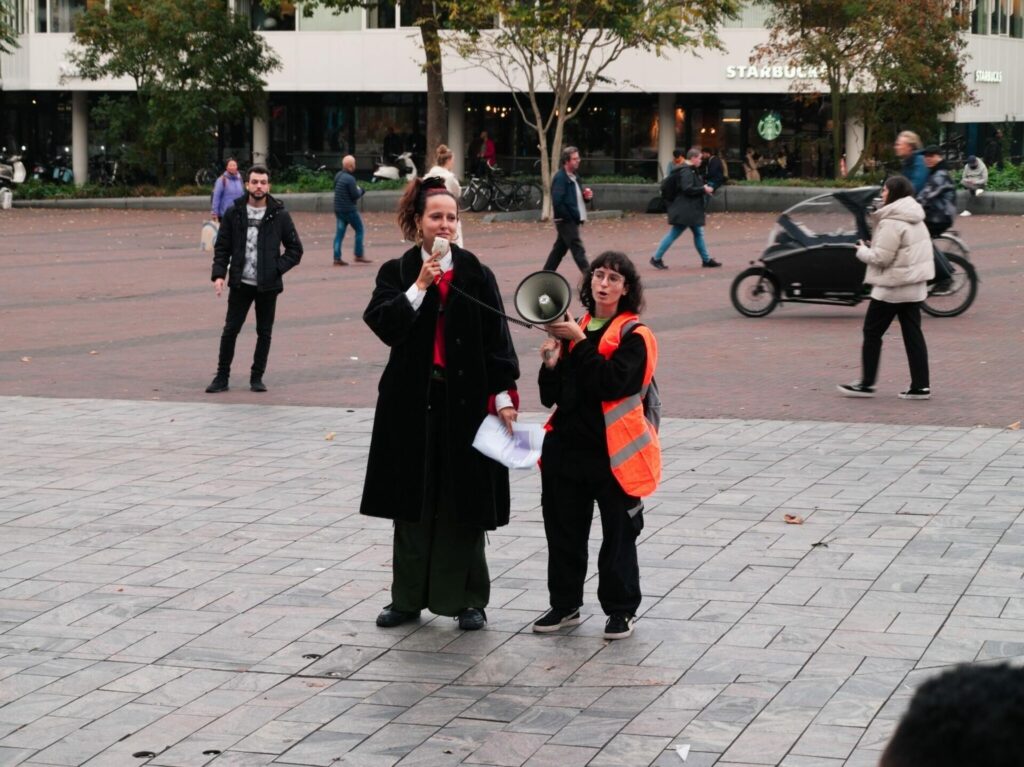
What makes us hopeful about these protests organized by students, artists and other non-traditional protesters, is that they do not seem to be trapped in the legacies and problems of established political activism. In an earlier article, we argued that the protests against the oppression of Palestinians at that same art school were refreshing because they escaped the trappings of traditional anti-imperialist activism that does not sufficiently distance itself from Arab nationalism and antisemitism.
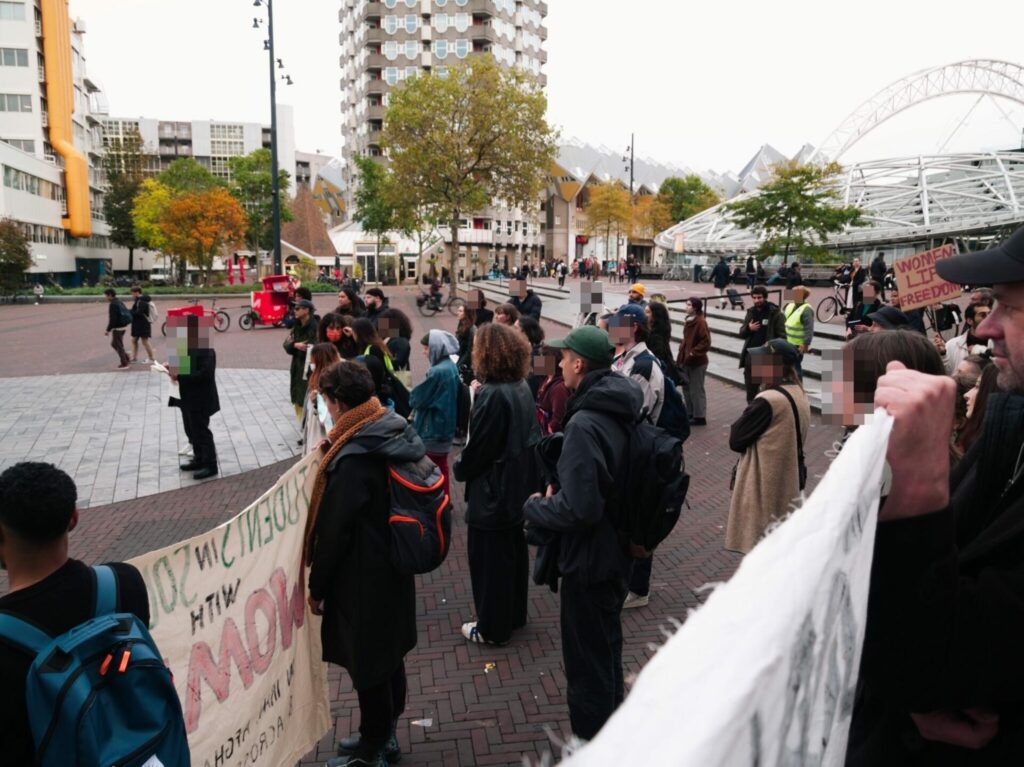
At yesterday’s protests against the oppression of women in Iran and Afghanistan, and their right to choose whether or not to wear a hijab, the speakers and participants were very clear that they were speaking from an intersectional anti-racist, anti-patriarchal and anti-capitalist perspective. It seemed to us that other more established left-wing political groups might not have joined this protest for fear of being identified with right-wing Islamophobic views.
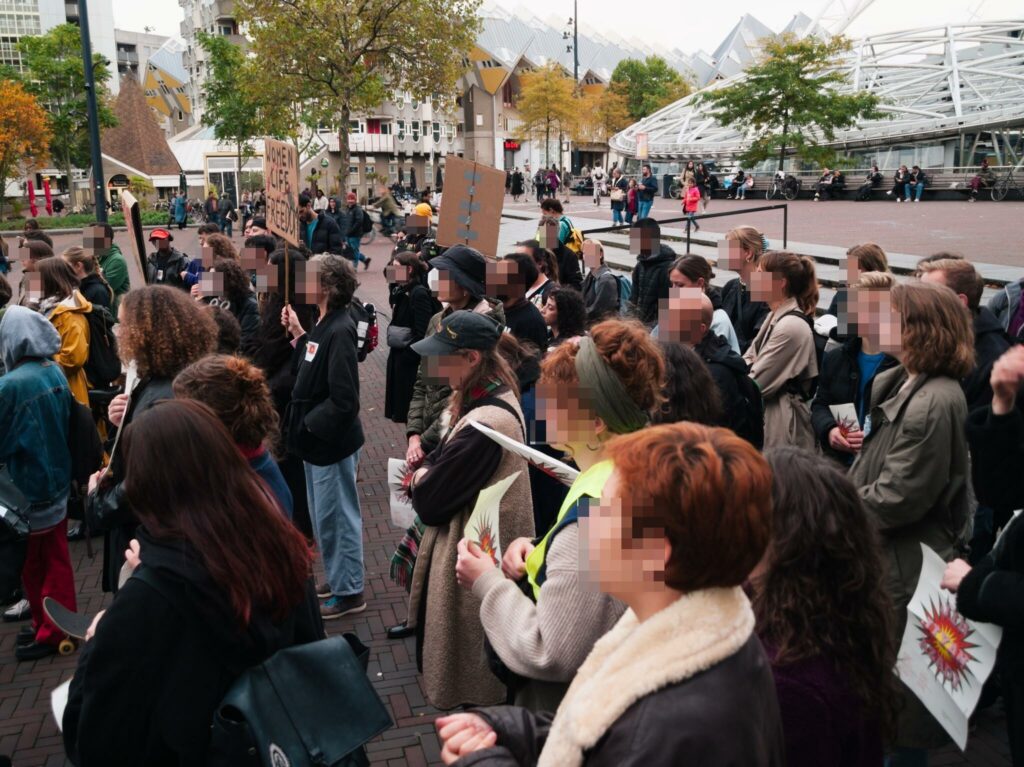
It should also be said that the protesters, as art students, were especially caring about beautifully produced flyposters, often poetic texts, and a selection of music including Iranian feminist hip-hop.
As Doorbraak, we are in solidarity with the student protesters and applaud them for their activism – and hope that other political activists can learn from the creativity of their protest!
Florian
